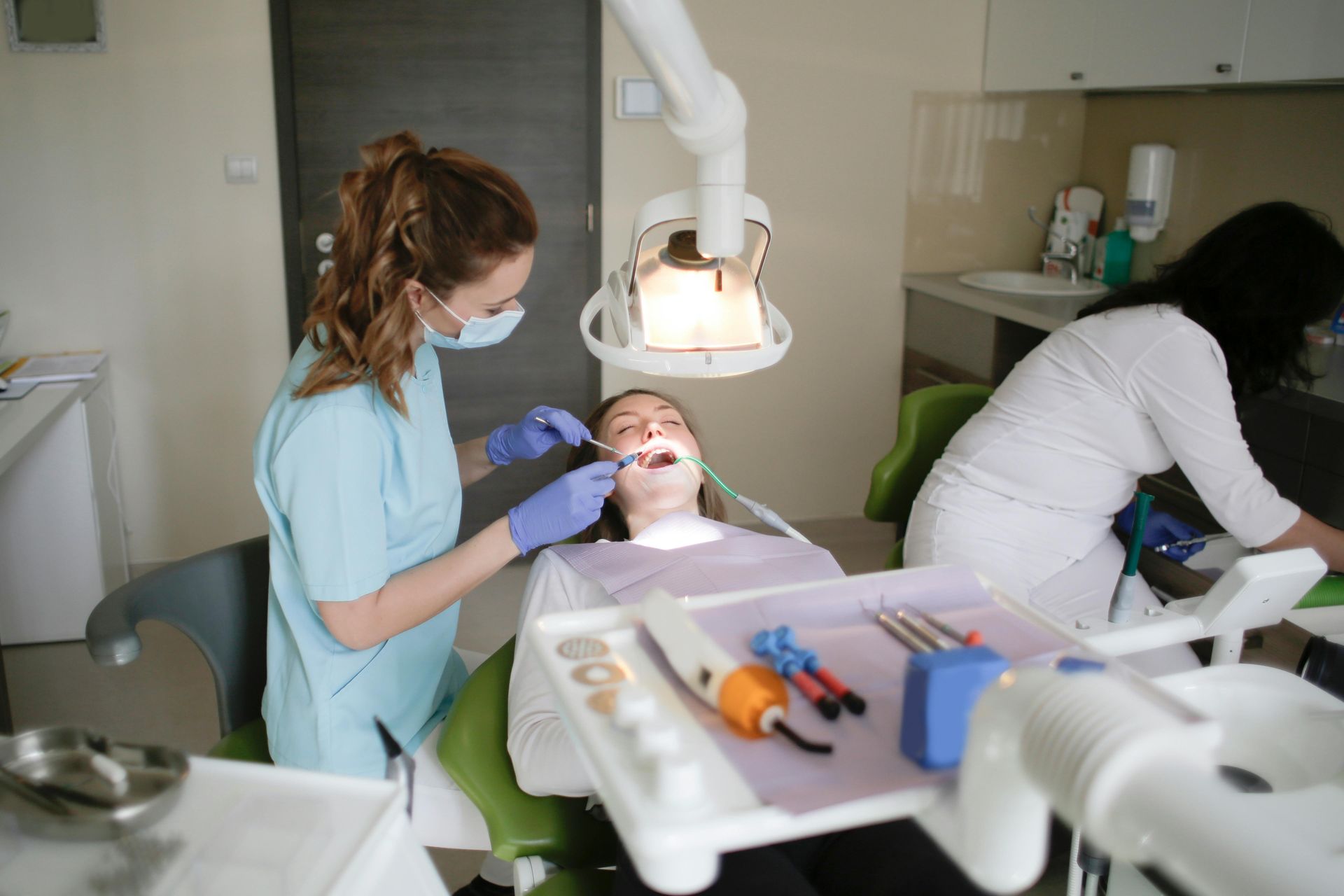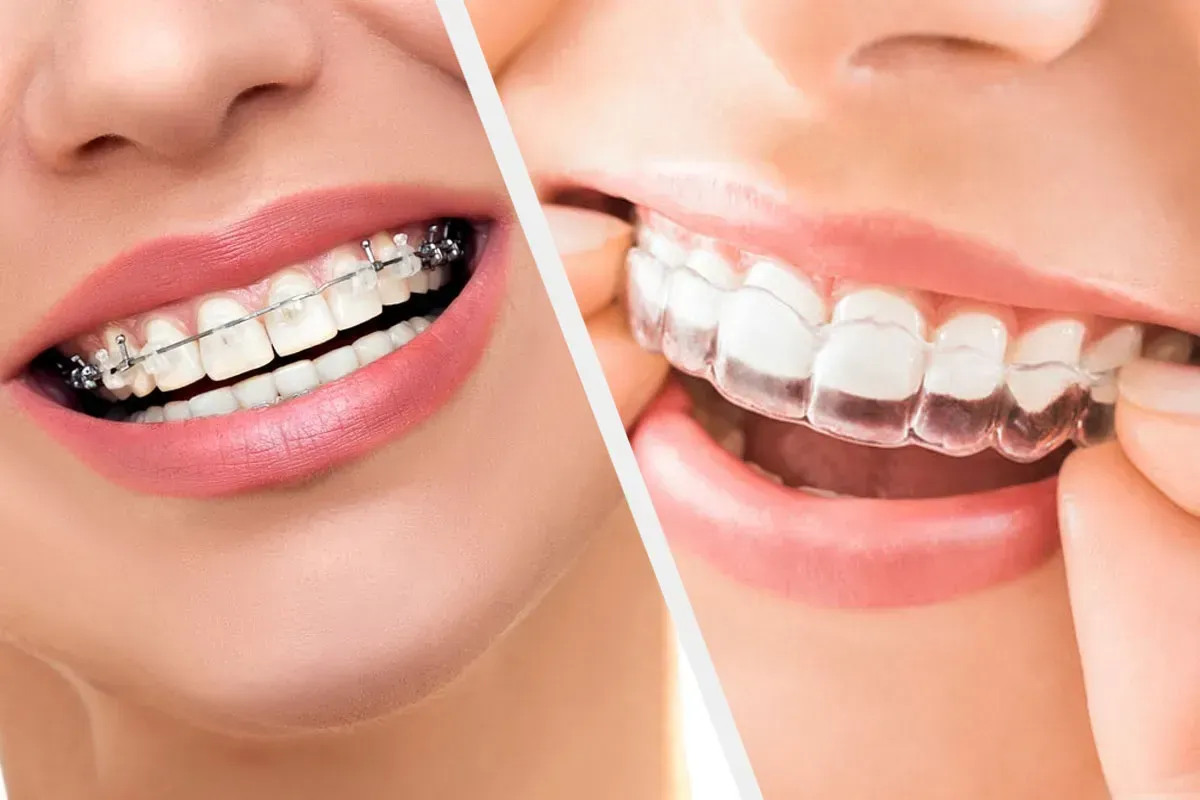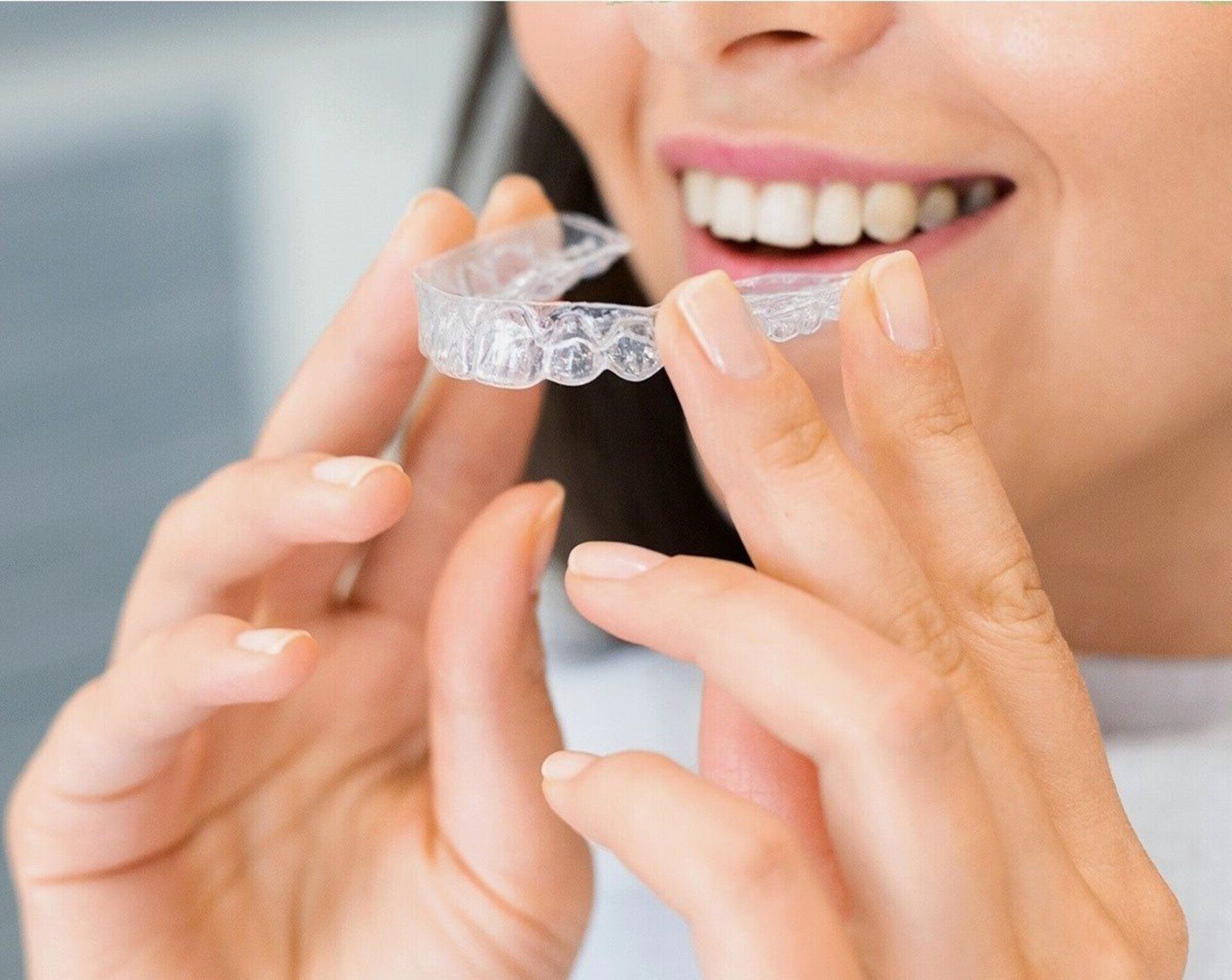Tips for Sensitive teeth
What Causes Tooth Sensitivity?
Imagine biting into an ice cream and being greeted by a sharp, shooting pain instead of sweet relief. Tooth sensitivity is a common yet debilitating condition affecting countless individuals. Delving into its causes is the first step to finding relief.
For those who wince at the thought of cold, hot, or sweet stimuli, understanding the interplay between diet and dental health is crucial. In the upcoming article, we’ll explore how acidic foods contribute to enamel erosion and heightened tooth sensitivity.
We will offer strategies for guarding against sensitivity, from selecting the right toothbrush to embracing proper brushing techniques, and when it's time to seek professional care. Join us as we chart the path to a more comfortable and confident smile.
Tooth sensitivity can manifest as a sharp pain or discomfort in your teeth when they are exposed to certain stimuli, such as hot, cold, sweet, or acidic foods and drinks. But what's at the heart of this common dental concern? Key factors contributing to tooth sensitivity include:
- Erosion of Tooth Enamel: The outer layer that protects teeth can wear down, exposing the sensitive dentin layer underneath.
- Gum Disease: Swollen, sore, or receding gums can leave portions of the tooth root exposed, prone to sensitivity.
- Tooth Decay: Cavities and decay can create holes that reach the sensitive inner layers of teeth.
- Aggressive Brushing: Brushing your teeth too hard can contribute to gum recession and enamel wear.
- Plaque Buildup: Excessive plaque can lead to enamel erosion and gum disease.
- Cracked Teeth or Fillings: These can become breeding grounds for bacteria, which may penetrate down to the nerves.
- Grinding Teeth: Habitual teeth grinding can wear down enamel and expose the dentin.
Often, tooth sensitivity is a signal from your body prompting you to evaluate your oral care routine and consult with a dental professional for proper diagnosis and treatment.
Understanding Tooth Enamel
Tooth enamel is the hardest substance in the human body, designed to protect teeth from the wear and tear of daily activities like chewing, biting, and crushing food. Despite its strength, enamel can be weakened and eroded over time due to various factors, including:
- Acid Exposure: Frequent contact with acidic substances can dissolve the enamel.
- Aggressive Brushing: Using a hard-bristled toothbrush or strong force can scrape away enamel.
- Tooth Grinding: This can cause significant wear to the enamel.
Maintaining your enamel's integrity is crucial for avoiding tooth sensitivity and maintaining overall dental health.
Acidic Foods and Tooth Enalen Erosion
Enamel erosion is often caused by the regular consumption of acidic foods. Here's a quick insight into how acidic foods impact tooth enamel:
- Demine ralization: Acidic substances can demineralize, or dissolve, the minerals that make up tooth enamel.
- Weakening Structure: Over time, acid wear can thin and weaken the enamel, making teeth more sensitive.
- Enhanced Decay Risk: Eroded enamel is more susceptible to cavities and decay, which can expose the sensitive dentin layer.
To protect your enamel, consider moderating your intake of acidic foods, using a straw when drinking acidic beverages, and rinsing with water after acidic meals.
Citrus Fruits and Tooth Sensitivity
While citrus fruits like oranges, lemons, and grapefruits are rich in vitamin C and offer health benefits, they can also contribute to tooth sensitivity:
- High Acidity: Citrus fruits have a high acid content, which can erode enamel over time.
- Direct Exposure: Frequent, direct exposure of teeth to citrus fruit juice can accelerate enamel erosion.
- Altered Oral pH: Consuming citrus fruits can lower the pH level in your mouth, creating an acidic environment that's harmful to enamel.
To enjoy citrus fruits without harming your enamel, eat them in moderation, pair them with less acidic foods, rinse your mouth with water after consuming, and wait to brush your teeth for at least 30 minutes to prevent further enamel damage.
Prevention and Management
To stave off the discomfort of sensitive teeth, prevention and proactive management are your main defenses. Incorporating a few simple practices into your daily oral health routine can greatly reduce tooth sensitivity. These practices may include:
- Adjusting Eating Habits: Reducing intake of acidic and sugary foods can help preserve tooth enamel.
- Proper Oral Hygiene: Following a thorough oral hygiene routine limits plaque buildup and gum disease.
- Use of Desensitizing Products: There are toothpastes and mouthwashes specifically designed to reduce tooth sensitivity.
- Professional Consultations: Regular dental check-ups enable early detection and treatment of potential problems.
By integrating these measures effectively, you can maintain stronger teeth and minimize the risk of experiencing sensitive tooth pain.
Choosing a Soft-Bristled Toothbrush
When it comes to brushing your teeth, the right tool matters. For those with sensitive teeth, a soft-bristled toothbrush is the best choice—it's kind on your enamel and gentle on your gums. Here's how to choose the right toothbrush:
- Look for brushes labeled as "soft" to minimize abrasion on your enamel and avoid irritating your gums.
- Ensure the toothbrush fits comfortably in your mouth and reaches all areas without struggle.
- Replace your toothbrush every three to four months, or sooner if bristles become frayed.
Remember, gentle circular motions are more effective and safer than aggressive brushing, which can lead to increased sensitivity and damage.
Importance of Gum Disease Prevention
Gum disease is a major contributor to tooth sensitivity. Preventing it not solely safeguards your gums but also is essential for preserving the supporting structures of your teeth. Here's a list of techniques to stave off gum disease:
- Regular Brushing and Flossing: This basic oral hygiene practice removes plaque and bacteria that can cause gum disease.
- Dental Cleanings: Semi-annual dental cleanings help to combat tartar buildup, which can lead to gum disease.
- Avoid Smoking: Tobacco use is a significant risk factor for developing gum disease.
- Balanced Diet: A nutritious diet supports overall oral health, including your gums.
By prioritizing the health of your gums, you're also protecting your teeth from excessive sensitivity and potential decay.
The Role of Fluoride Toothpaste
Fluoride is heralded for its ability to strengthen tooth enamel and make it more resistant to decay. Here's why fluoride toothpaste should be a staple in your oral care regimen:
- Remineralization: Fluoride helps to restore minerals to the enamel that may be lost due to acid exposure.
- Reduces Decay: Regular use of fluoride toothpaste can significantly reduce the risk of cavities.
- Desensitizing Action: Many fluoride toothpastes contain ingredients like potassium nitrate, which help relieve sensitive tooth pain.
It is recommended to brush twice a day with fluoride toothpaste for optimal oral health. However, be sure to use the toothpaste as directed and avoid swallowing to prevent any adverse effects.
Protecting Your Teeth
Protecting your teeth should remain a cornerstone of your daily oral health routine. To safeguard your pearly whites against the triggers of tooth sensitivity and maintain strong teeth, here are several practices to adopt:
- Minimize Erosive Foods: Limiting exposure to citrus fruits and other acidic foods can prevent the outer layer of enamel from wearing away.
- Soft Bristle Usage: Utilize a toothbrush with soft bristles to clean effectively without causing harm to enamel or gums.
- Fluoride Treatment: Incorporate fluoride treatments into your dental care for enhancing enamel strength and combating tooth decay.
- Regular Dental Visits: Professional assessments and cleanings can identify issues preemptively, reducing the risk of tooth root exposure or decay.
- Mouth Guards: If grinding is an issue, a mouth guard at night can prevent further tooth damage.
By steadfastly adhering to these protective strategies, the onset of sensitive tooth pain can be mitigated, and a foundation for long-lasting oral health is established.
Avoiding Cold Foods and Beverages
Individuals with tooth sensitivity may experience discomfort when consuming cold foods and beverages. This is due to the exposure of nerve endings in the teeth when dentin layers become unprotected through enamel wear or gum recession. To make your oral care experience more pleasant:
- Be Mindful of Temperature: Opt for drinks at a more moderate temperature and consider using a straw to bypass the teeth.
- Warm Water Rinse: If sensitivity strikes, rinsing with warm water can help alleviate pain.
- Dairy Products: Incorporating dairy into your diet, which are generally less harsh on your teeth, can be beneficial for calcium intake and enamel protection.
- Desensitizing Options: Look for desensitizing gels or pastes to apply before indulging in cooler foods and beverages.
Gentle Brushing Techniques
Adopting a gentle approach to brushing can significantly improve comfort for those with sensitive teeth. This involves using mild pressure and sweeping the brush across the teeth in a soft, circular motion rather than aggressive horizontal scrubbing. Holding the brush at a 45-degree angle to the gums helps target plaque buildup without causing abrasion to sensitive gum lines or enamel.
- Use a Timer: Brush for the dentist-recommended two minutes to ensure thorough cleaning while preventing over-brushing.
- Mindful Movements: Pay attention to brush strokes to keep them gentle and targeted.
Using Soft Bristles for Sensitive T
When catering to sensitive teeth, the choice of a toothbrush is crucial. Soft-bristled toothbrushes are specifically designed to provide a thorough cleanse without inflicting any undue stress on the teeth and gums. The flexible bristles bend easily, allowing for gentle plaque removal without damaging the tooth enamel or irritating the gums.
Benefits of Using Warm Water
Warm water can provide immediate relief for sensitive teeth by soothing the nerve endings. Unlike cold water, which can trigger a sharp pain, warm water is much milder on the teeth. It also aids in dissolving toothpaste and loosening food particles, enhancing the brushing and rinsing process.
- Soothes Nerves: Offers a calming effect on sensitive tooth nerve endings.
- Enhances Cleansing: Helps in breaking down plaque and residue more effectively.
- Comforting Rinses: Avoids the discomfort associated with cold water.
Overcoming Aggressive Brushing Habits
Aggressive brushing can be harmful to teeth, potentially leading to increased sensitivity and damaging oral health. Breaking these habits is essential for preserving your enamel and protecting your gums from recession.
- Awareness: Recognize and stop forceful brushing techniques.
- Brush Selection: Choose toothbrushes labeled as 'soft' on packaging.
- Technique Training: Re-learn brushing methods with a focus on gentleness.
- Follow-Up: Regularly evaluate your brushing method and adjust as needed.
Seeking Professional Help
If your sensitive teeth are not responding to home care methods, it may be time to seek professional help from a dentist. Tooth sensitivity can be a sign of underlying issues such as tooth decay, a fractured tooth, worn fillings, gum disease, or exposed tooth roots—all conditions that require professional intervention. Dentists can identify the specific cause of your sensitivity and recommend appropriate treatments.
Exploring Fluoride Treatments for Sensitivity Relief
Fluoride plays a vital role in strengthening tooth enamel and preventing tooth decay. It also has significant benefits for those with sensitive teeth. Fluoride treatments, available through dental professionals, increase the tooth's resistance to acid attacks and help to reduce the transmission of discomfort. These in-office treatments can provide a higher concentration of fluoride than over-the-counter products.
- Professional Application: Ensures proper and safe use of high-concentration fluoride.
- Strengthen Enamel: Promotes the remineralization process.
In some cases, your dentist might recommend at-home fluoride treatments as part of your oral hygiene routine. Incorporating fluoride treatments can significantly contribute to decreasing sensitivity and fostering strong, healthy teeth.
At Wexford Dental we offer only what you need dentistry in Scarborough. If you think your Sensitive teeth could be affecting your wellness, call us today at
416-222-82-96 to schedule an appointment for a general check-up to detect any potential signs of alarm.












